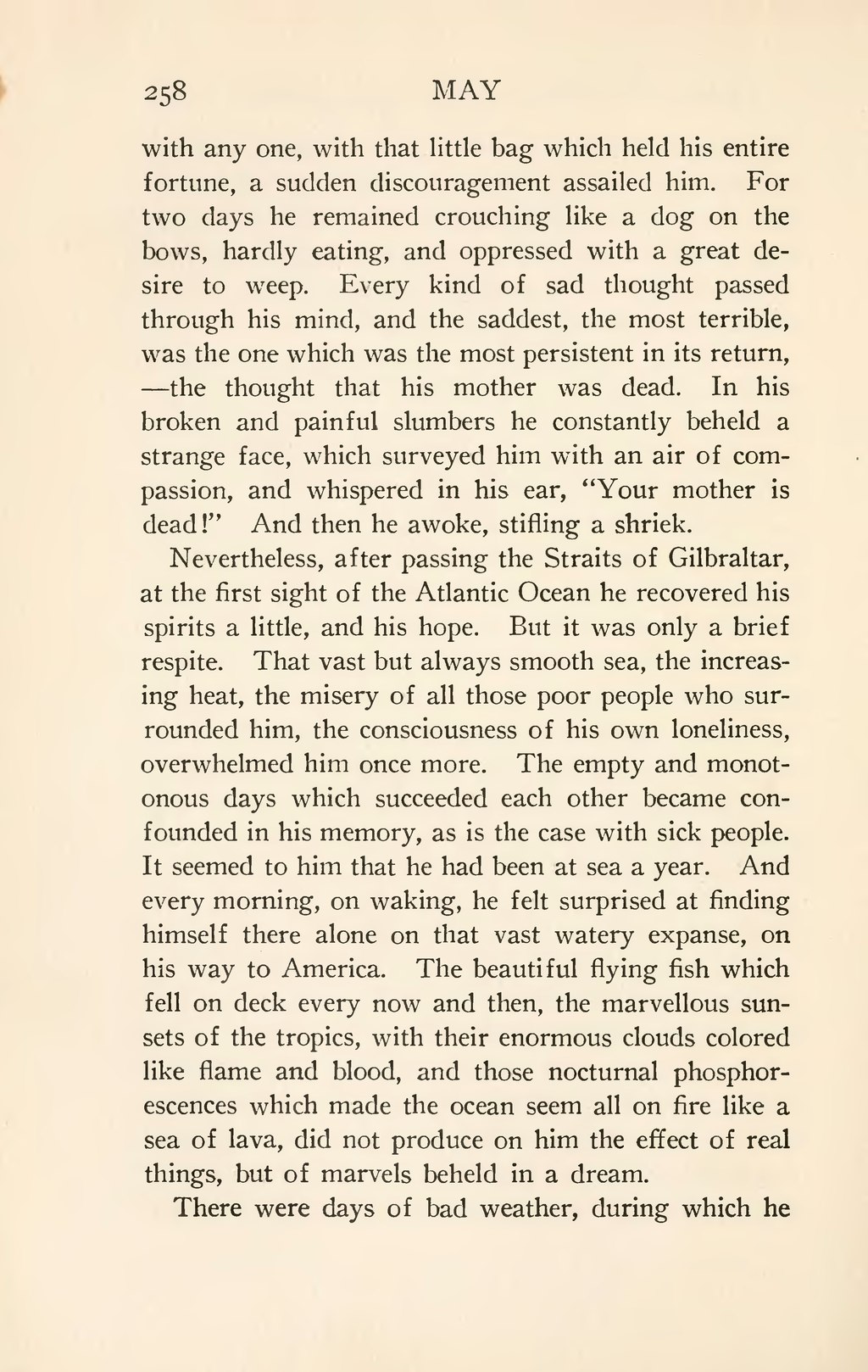with any one, with that little bag which held his entire fortune, a sudden discouragement assailed him. For two days he remained crouching like a dog on the bows, hardly eating, and oppressed with a great desire to weep. Every kind of sad thought passed through his mind, and the saddest, the most terrible, was the one which was the most persistent in its return,—the thought that his mother was dead. In his broken and painful slumbers he constantly beheld a strange face, which surveyed him with an air of compassion, and whispered in his ear, “Your mother is dead!” And then he awoke, stifling a shriek.
Nevertheless, after passing the Straits of Gibraltar, at the first sight of the Atlantic Ocean he recovered his spirits a little, and his hope. But it was only a brief respite. That vast but always smooth sea, the increasing heat, the misery of all those poor people who surrounded him, the consciousness of his own loneliness, overwhelmed him once more. The empty and monotonous days which succeeded each other became confounded in his memory, as is the case with sick people. It seemed to him that he had been at sea a year. And every morning, on waking, he felt surprised at finding himself there alone on that vast watery expanse, on his way to America. The beautiful flying fish which fell on deck every now and then, the marvellous sunsets of the tropics, with their enormous clouds colored like flame and blood, and those nocturnal phosphorescences which made the ocean seem all on fire like a sea of lava, did not produce on him the effect of real things, but of marvels beheld in a dream.
There were days of bad weather, during which he

